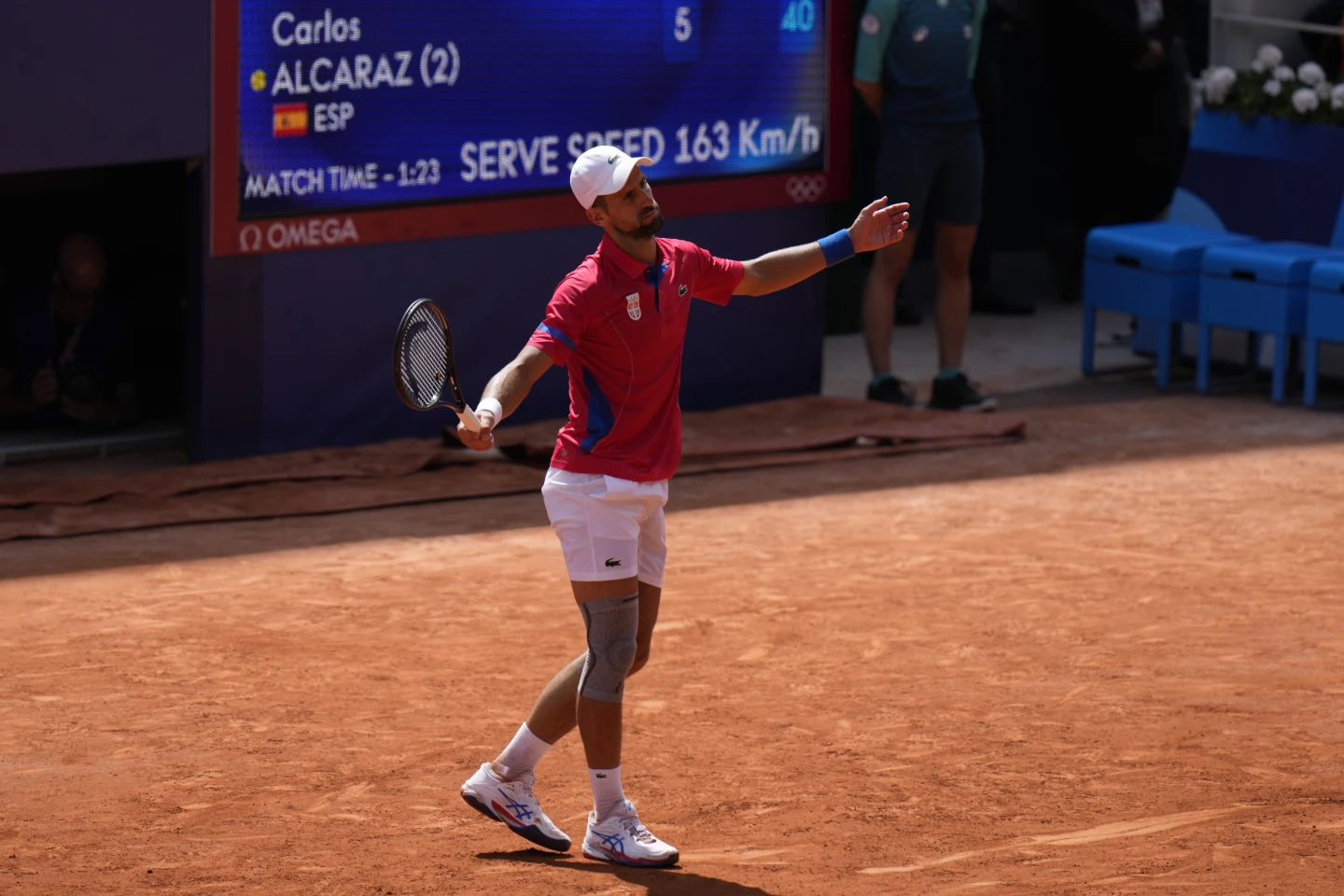Novak Djokovic won his first Olympic gold medal by beating Carlos Alcaraz 7-6 (3), 7-6 (2) in a thrilling men’s tennis singles final on Sunday. This victory gave the 37-year-old from Serbia the final major achievement missing from his impressive career.
Djokovic’s career already included a record 24 Grand Slam titles and the most weeks spent at No. 1 in the rankings by any player. He also had an Olympic medal from 2008, but it was just a bronze, and he had made it clear that this was not enough for him.
Before beating Lorenzo Musetti of Italy in the semifinals on Friday, Djokovic had lost in the semifinals of the Olympics three times before. Each time, he lost to the player who went on to win gold: Rafael Nadal in Beijing 2008, Andy Murray in London 2012, and Alexander Zverev in Tokyo three years ago.
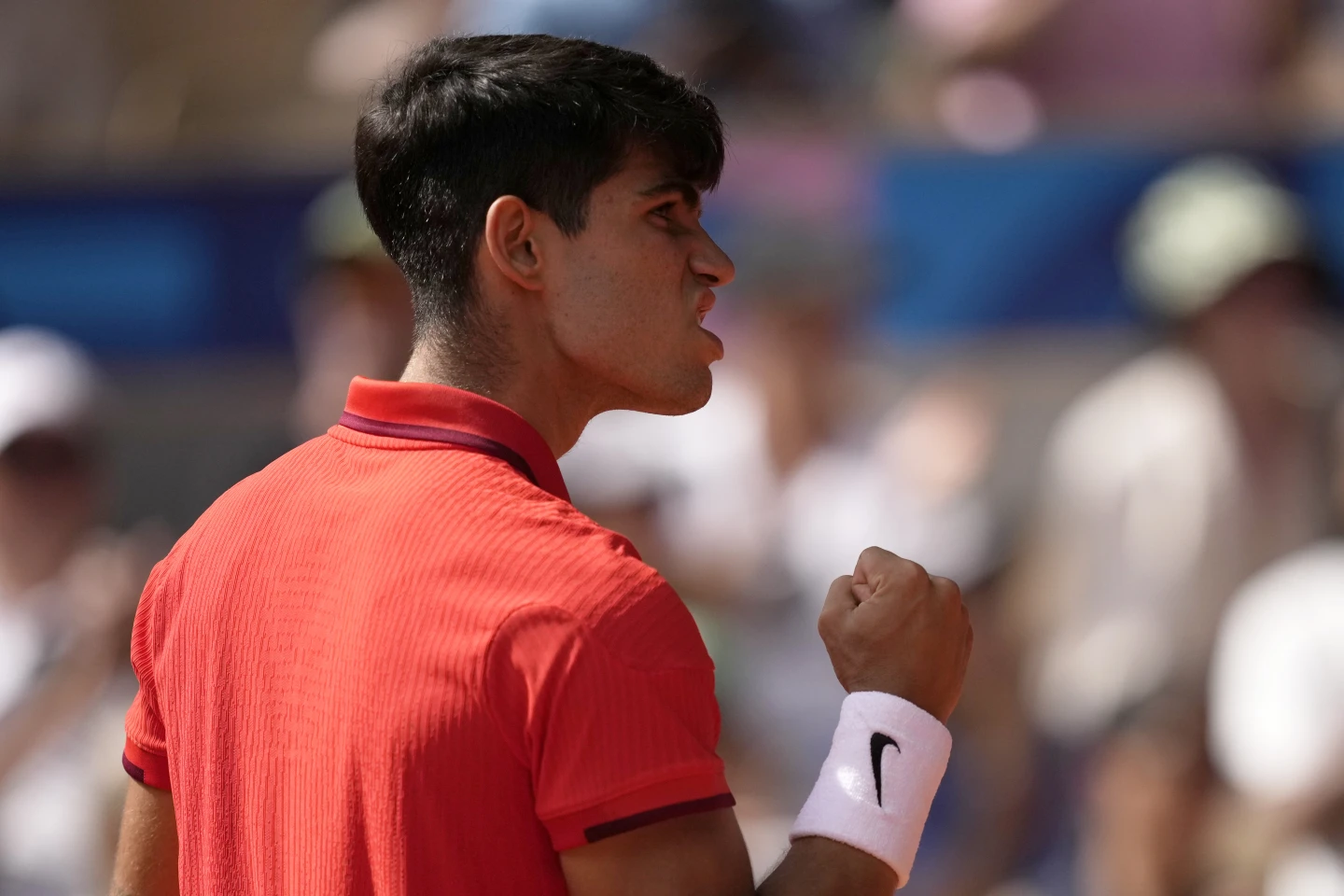
In Paris, Djokovic, who had a gray sleeve on his right knee due to recent surgery for a torn meniscus, defeated Nadal in straight sets in the second round.
Now, Djokovic is the oldest man to win the singles gold in tennis since 1908 and stopped the 21-year-old Alcaraz from becoming the youngest.
When Djokovic secured his win, he celebrated by turning towards his team in the stands, which included his wife and their two children.
He dropped his racket and knelt on the clay court, crying and covering his face before standing up to wave a red, white, and blue Serbian flag. Alcaraz also cried after the match.
The final lasted 2 hours and 50 minutes, even though it was only two sets. It was a rematch of the Wimbledon final from three weeks ago, which Alcaraz had won after his French Open title in June.
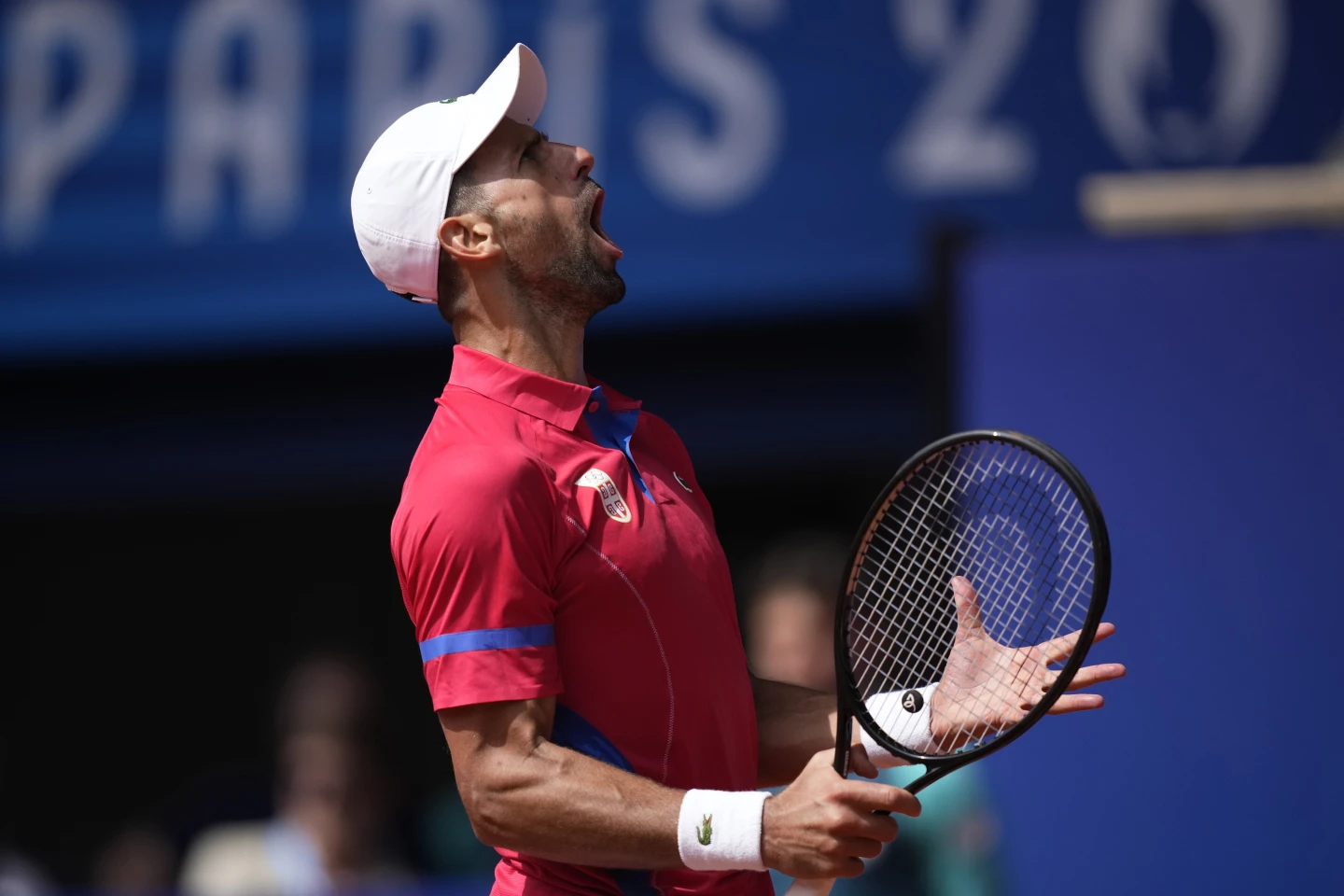
Alcaraz also beat Djokovic in last year’s final at Wimbledon, but Djokovic won their match in the semifinals of the 2023 French Open, which is the clay-court tournament held at Roland Garros, the same place used for tennis in these Olympics.
Sunday’s match was exciting, featuring Djokovic, one of the best ever, and Alcaraz, who is currently the best. It might have been frustrating for Djokovic to face a younger and faster version of himself again. Maybe that’s why he often looked up and gestured and muttered towards his guest box.
Despite this, Djokovic came out as the winner.
The match involved long rallies with excellent shots from the baseline, clever drop shots—Alcaraz’s drop shots were often so good that Djokovic didn’t even try to chase them—and impressive defense and speed from both players. They both served so well that neither was broken: Djokovic saved eight break points, and Alcaraz saved six.
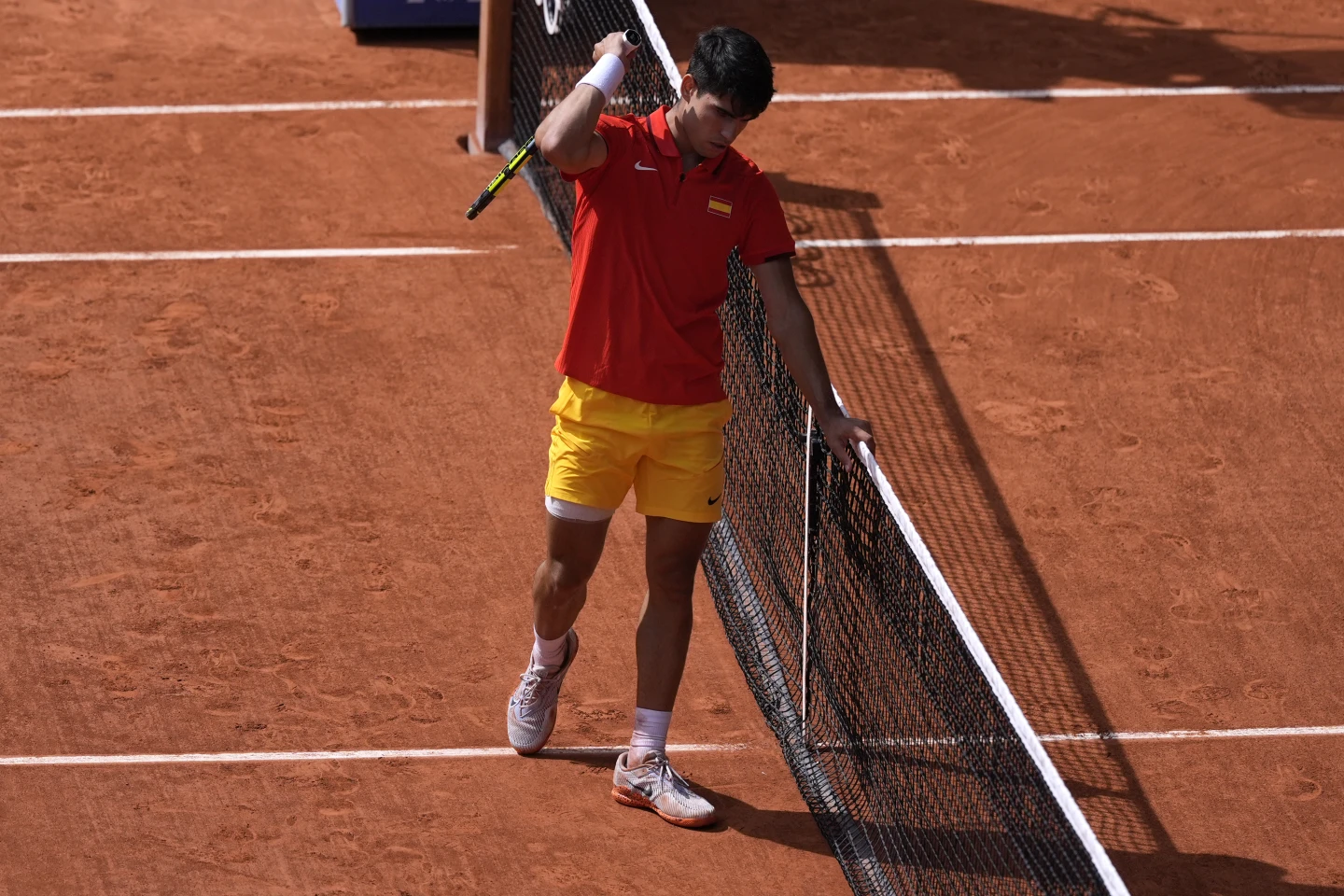
What stood out was how well both players played despite the strong competition and high pressure. They made very few mistakes.
One downside for the fans—and of course, the loser—was that the Olympics uses a best-of-three-sets format instead of the best-of-five sets used in Grand Slam tournaments. This match between the top-seeded Djokovic and second-seeded Alcaraz deserved a Grand Slam final’s length, but anyone who had a ticket got their money’s worth.
The crowd was very involved, often chanting “No-le! No-le!” for Djokovic or “Car-los! Car-los!” for Alcaraz, creating a lively atmosphere. As Alcaraz tried to come back in the second set, his supporters chanted “Si, se puede!” (which means “Yes, you can!”) while waving their red-and-yellow flags. Chair umpire Damien Dumusois had to remind people to stay quiet during the play.
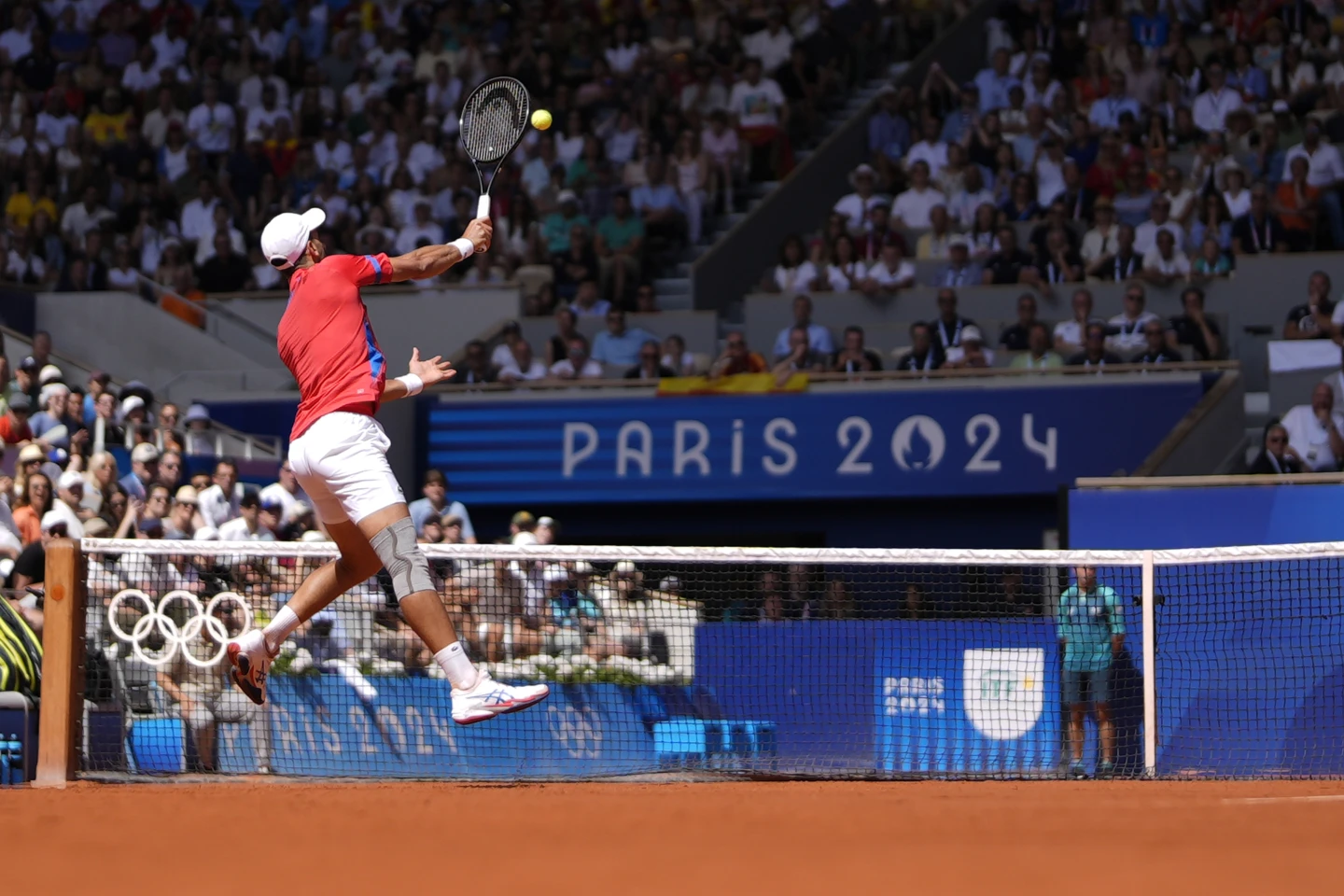
It also became very quiet between points, almost like a theater, and the play was briefly stopped in the first set when a child started crying.
Both players played to the crowd. When Alcaraz sprinted to reach a drop shot and hit it over the net for a winner, he enjoyed the loud cheers by pointing his right index finger to his ear.
When Djokovic hit a great cross-court forehand winner during a 10-shot rally to go up 3-2 in the second tiebreaker, he waved both arms in the air to get the already cheering crowd even more excited.
The first set alone lasted more than 1 1/2 hours, filled with amazing shots and long games. One game went on for 18 points over more than a dozen thrilling minutes, including five break chances for Alcaraz, before Djokovic managed to hold serve for a 5-4 lead.
In the tiebreaker, Djokovic excelled at the crucial moments, winning the last four points.
At 3-all, Alcaraz served to Djokovic’s body, but Djokovic moved just enough to his left to hit a cross-court forehand return winner. After two mistakes by Alcaraz, Djokovic scored a volley winner and turned to face his family with a fist raised.
